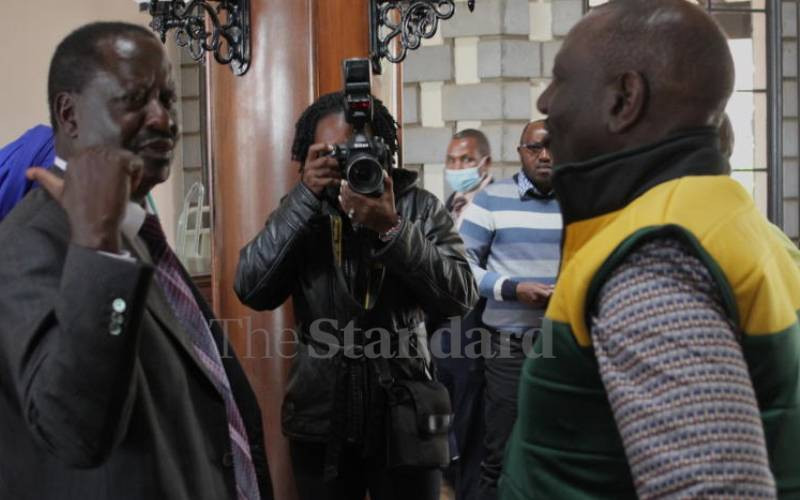×
The Standard e-Paper
Home To Bold Columnists

The main protagonists in this year's General Election, Raila Odinga and Deputy President William Ruto, yesterday failed to agree on whether to have a manual register in place as a backup to the electronic voter identification system.
While Raila, who is the presidential flagbearer of the Azimio-One Kenya coalition, and his allies made a case for having a printed register, Ruto, who is vying on a United Democratic Alliance ticket, and his representatives, insisted on an electronic register.